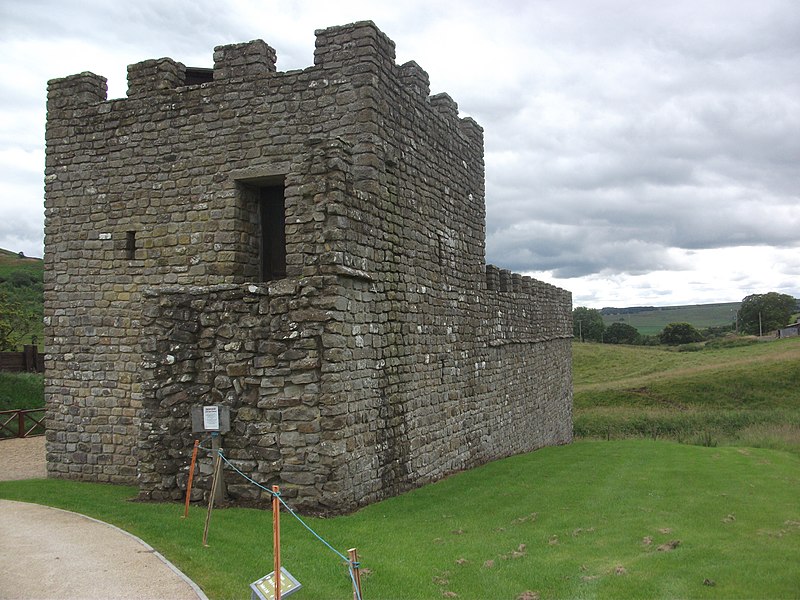As the US left Afghanistan last month after a twenty-year occupation, “marking the end of the United States’ longest war,” it has become clear that such departures are not easy or straightforward. Negative reactions have emerged from a range of sectors, including veterans of the war, providing a rare instance of unity of opinion (albeit for different reasons) on the part of Americans, normally so polarized politically. Indeed, the only group whose joy over this development has been clearly documented is the Taliban, who happily took over the region with incredible speed, even as American troops were still packing up. But perhaps we should not have been surprised at these developments. History shows that as hard as it is to maintain control over a territory for a prolonged period, leaving is never easy, and has significant ramifications for both the departing military forces and those they leave behind. So how should we as Americans and as Christians process this particular departure? Perhaps a historical comparandum can help.
In the late fourth century CE, the Romans began a slow and likely not fully intentional process of leaving Britain after nearly half a millennium of occupation. The Romans first flirted with conquering the island in the mid-50s BCE, when Caesar made two brief winter-time forays there. But his attention was mostly focused on Gaul at the time. Then beginning with the emperor Claudius in 43 CE, the Romans began paying greater attention to Britain. Conquering the island and maintaining it as a province took significant resources. Claudius devoted to the task four legions out of the twenty-eight that were in action in the entire empire at the time.

(Mapping the Conquest and Romanization of Britain)
Contrary to some Romans’ expectations, the Britons did not joyfully embrace the Roman efforts to bring culture, public baths, and better-quality wine and olives to their rainy island, much bemoaned by Roman visitors for its miserable clime. The northern portions, including modern-day Scotland, were never fully brought under Roman control, and continued to threaten the success of the entire endeavor. Some Romans themselves were aware of the negative feelings their continued military presence (and, let’s be honest, abuses of power!) engendered. In 61 CE, the explosive revolt led by Boudica, queen of the Iceni, came close to overthrowing the Roman rule in Britain. Londinium, the provincial capital, was burned to the ground. But the Romans ultimately prevailed, and continued to rule over the unfriendly local populace. The late first-century CE Roman historian and senator Tacitus includes a particularly powerful perspective on local anti-Roman sentiment in his biography of his father-in-law, Julius Agricola, who served as governor of Britain in 78-84 CE. The speech of the Caledonian leader, Calgacus, who led his people to fight the Romans, is probably a work of fiction (and so may be Calgacus himself, in fact), but the feelings it expresses are likely no less accurate:
“Robbers of the world, having by their universal plunder exhausted the land, they rifle the deep. If the enemy be rich, they are rapacious; if he be poor, they lust for dominion; neither the east nor the west has been able to satisfy them. Alone among men they covet with equal eagerness poverty and riches. To robbery, slaughter, plunder, they give the lying name of empire; they make a desert and call it peace” (Tacitus, Agricola 30).
And so, keeping Britain as a province continued to come to the Romans at a high cost. Many provinces remained loyal without any military personnel present in the vicinity, but Britain was not such a province. To keep the larger southern area of the island safe from continued encroachment by various raiders from Scotland, beginning in 122 CE the emperor Hadrian invested in building a massive wall, seventy-three miles long. The wall included a series of forts, fully manned, and ready to defend that frontier.

(Hadrian’s Wall Reconstruction)
The most famous of these, Vindolanda, has yielded a treasure trove of wooden tablets, a veritable archive of daily life of military personnel and their families (everything from “please send me warm socks” to “come to my birthday party, friend”). Twenty years later, the emperor Antoninus Pius attempted to extend Roman holdings a bit further into Scotland, and built (you guessed it!) his own fancy wall to defend the new border. But a mere eight years later, the Romans had to admit the impossibility of maintaining that new frontier, and retreated back to Hadrian’s Wall, where they remained well into the fourth century.
In Late Antiquity, military forces continued to be stationed in Britain, with the very reasonable assumption that trouble in the province was always imminent. And so, as soon as the Romans were distracted elsewhere, and could no longer devote extensive resources to Britain in the late fourth century, chaos erupted. The Picts, previously confined to Scotland, along with several other tribal groups, promptly began raiding territories that had up until recently been under Roman protection. The super-star Roman general of the day, Stilicho, appears to have fought a brief war against the Picts, until events on the continent called him there. And yet, those residing in the former province were not quite ready to be left behind, even as the empire seemed to be leaving them. Roman troops remained faithfully stationed at some of the forts along Hadrian’s Wall, protecting their surrounding areas as best they could, perhaps for years after the paychecks stopped coming. And some communities kept waiting for the Romans to come to their aid as late as 410 CE – a later Byzantine historian, Zosimus, tells us of their desperate plea for help to the emperor Honorius in 410 CE.

(Map of the End of Roman Rule in Britain)
Honorius, however, was otherwise occupied that year. On August 24 of 410 CE, the Visigoths, led by Alaric, began their vicious sack of Rome, an event that those who lived through it rightly saw as the beginning of the end – or maybe even the end of the end? – of their great empire. Is that not, after all, the ultimate harbinger of the end of an empire, when it no longer strikes back at attackers, but simply leaves?
While an occupation of twenty years is a far cry from almost half a millennium, it is still long enough to establish presence, build lasting physical structures, and form connections with the locals. And so, historical stories of departures after such long-term occupations raise ethical questions of obligations. What are the occupiers’ obligations to those they leave behind, whether those locals who had aided them and worked for them, or just vulnerable civilians in general? And what about the occupiers’ obligations to their own military personnel? How to contextualize and explain the previous sacrifices and losses incurred during the operation to soldiers, who may feel betrayed by the orders to depart? And, finally, what are the occupiers’ obligations to their own fellow-citizens back home, whose taxes had in part, at least, financed the conquest or occupation? Costs can vary in shape, and emotional and psychological costs can be no less significant than economic, albeit more difficult to assess – studies of PTSD in both military personnel and civilians in war zones continue to show as much. And then, of course, there are the costs in human lives – lives of military personnel lost in combat, lives of veterans (and, implicitly, of their families) forever changed by long-standing combat, lives of civilians harmed by the occupation, and lives of civilians under threat once the occupiers leave, and a new government takes over, whether the Taliban or the Anglo-Saxons. Memories of the US war in Vietnam continue to horrify us and reduce us to tears, even as the youngest veterans are now well into their seventies. Memories of Afghanistan seem poised for the same legacy. As Christians, we cannot stop there, however.
When the Roman Empire did not strike back anymore against such other invaders as the Picts, but left Britain behind, that moment reflected the weakness and desperation of Roman political and military leaders at the time. But that moment also had powerful theological implications for the empire’s religious leaders. On the opposite end of the empire, in North Africa, Augustine, bishop of Hippo, would spend the last years of his life processing the Sack of Rome, reminding his readers that it is the celestial kingdom that should occupy our minds and hearts, rather than the earthly city of Rome, and the now fading empire for which it stands. In the turmoil of the present, Augustine’s response seems no less relevant for Christians today.
Some three-hundred years after the Romans faded from Britain, the Venerable Bede, a monk in the very region from which previously various tribes came a-raiding southward against the Roman occupiers, completed his Ecclesiastical History of the English People. Modeling his work on both Acts of the Apostles and Eusebius’ History of the Church, Bede wrote in excellent Latin prose. True to form, he began his work with Caesar’s first exploration of Britain in 55 BCE. It’s almost as though the Romans had never really left after all.













